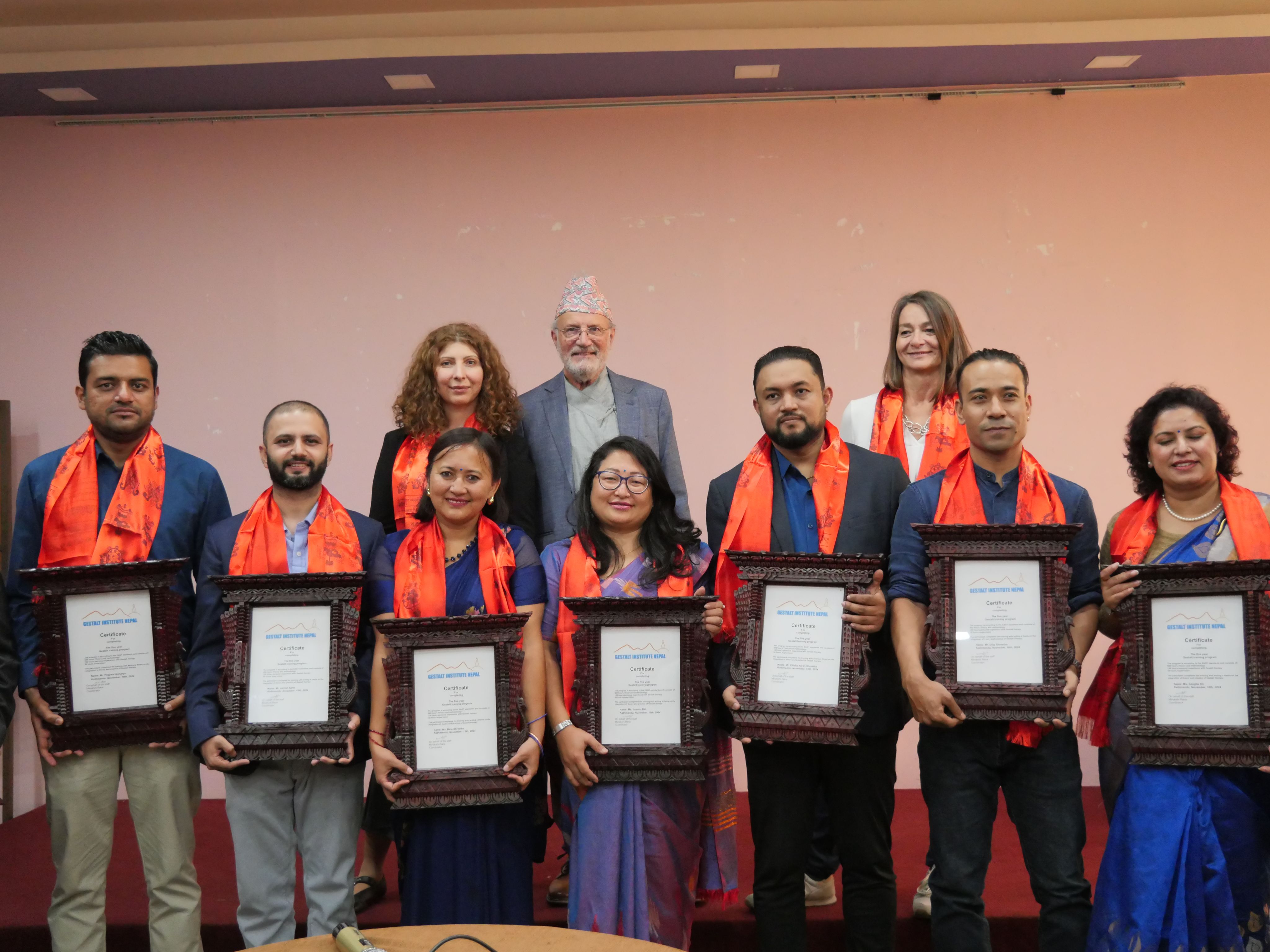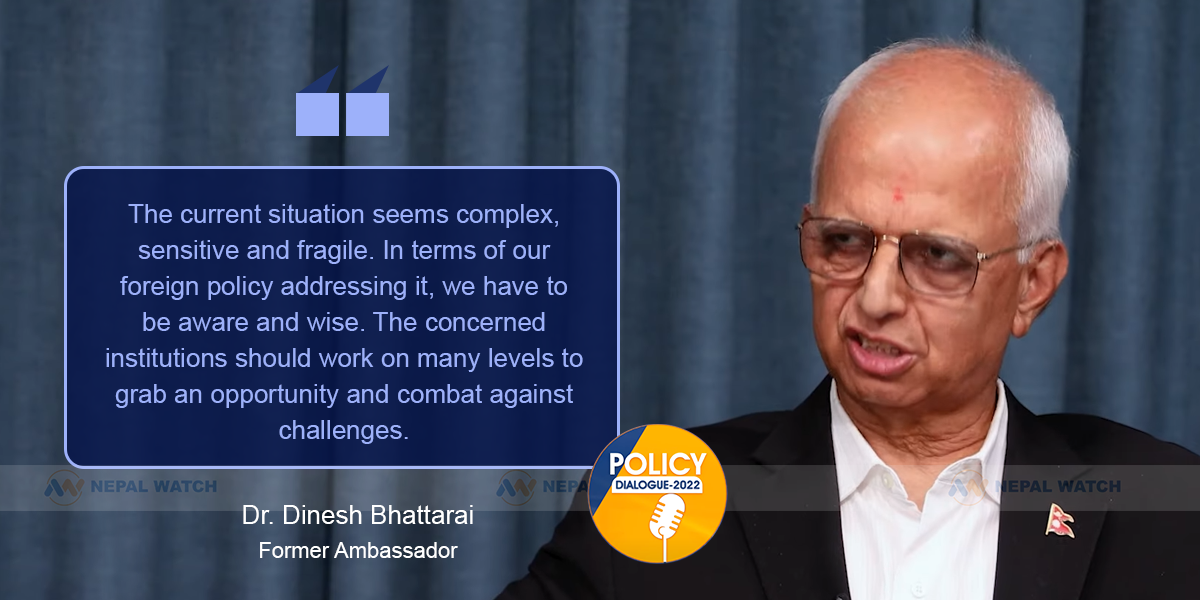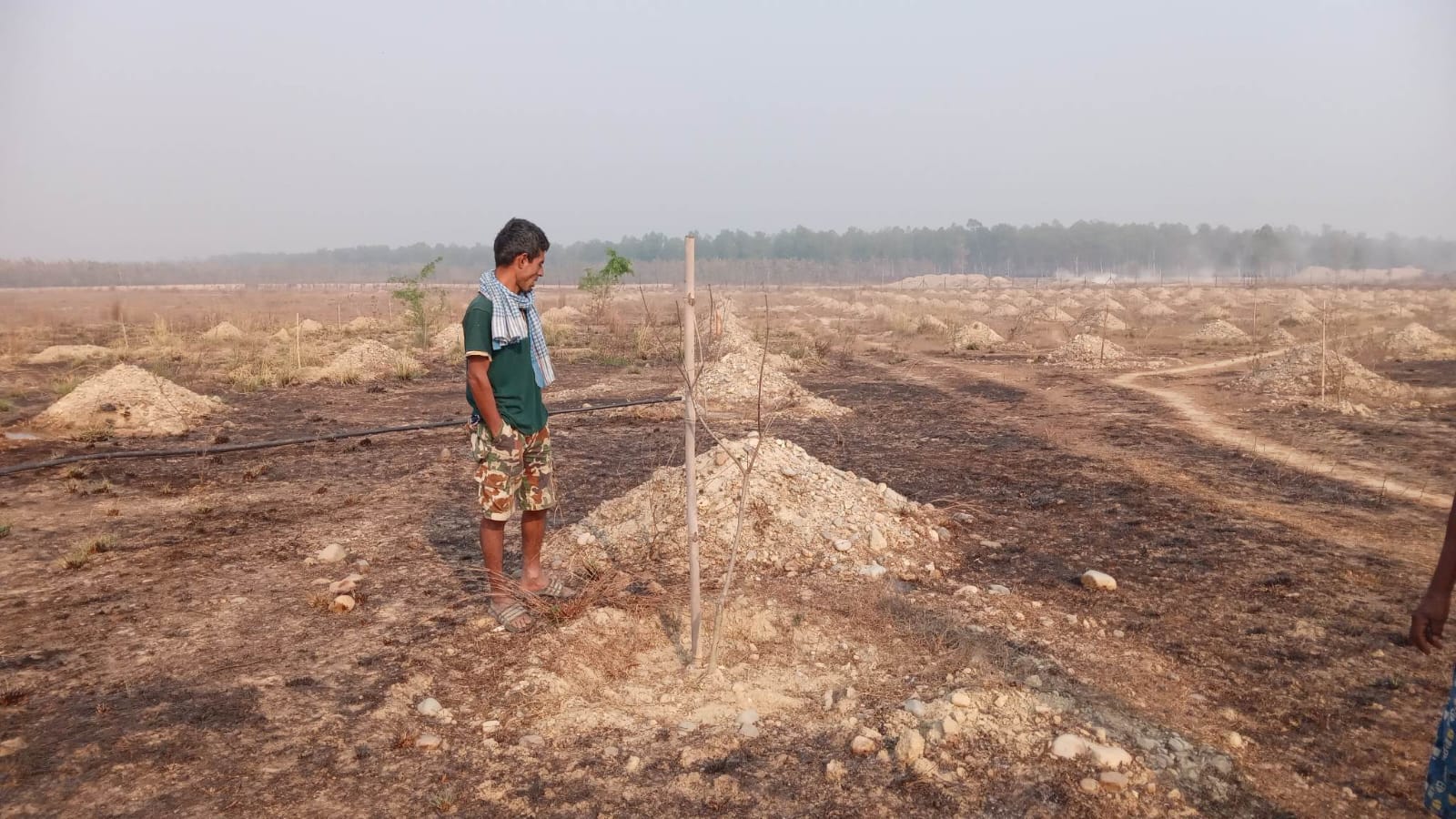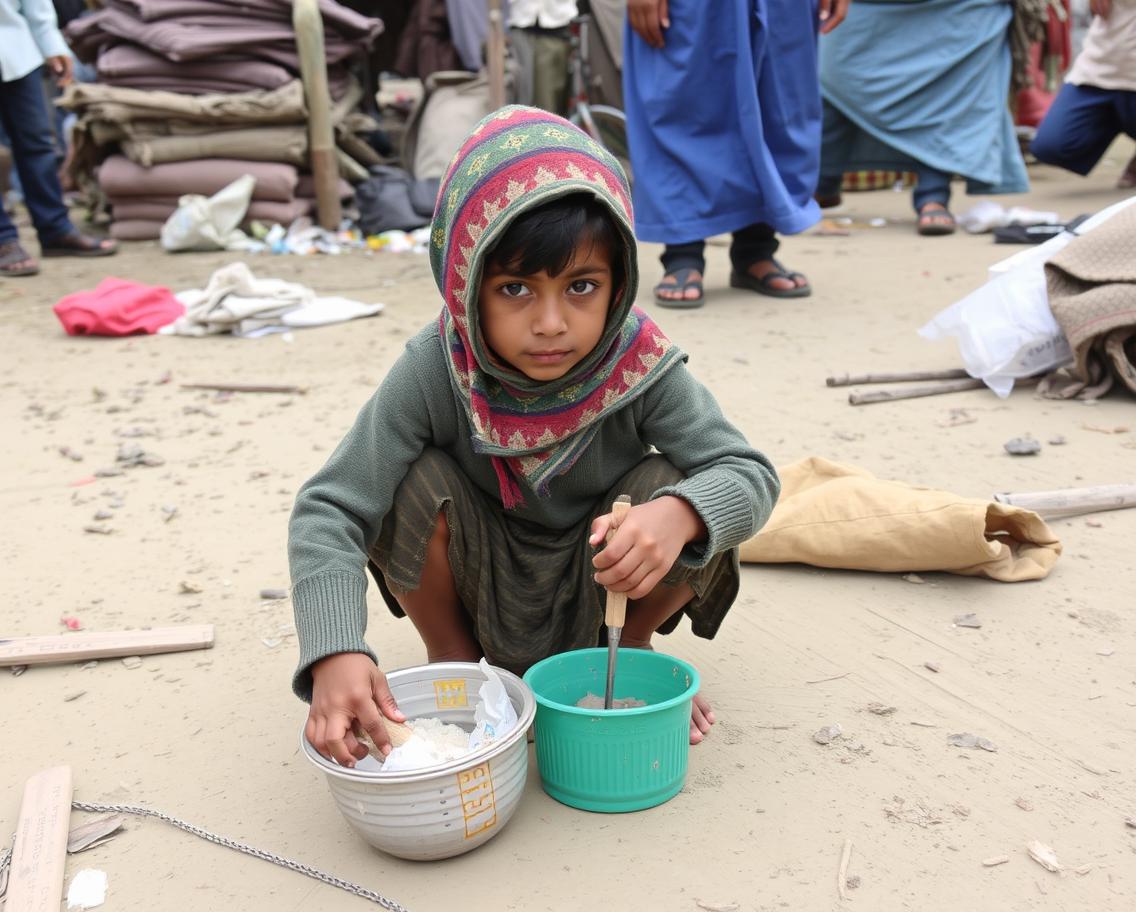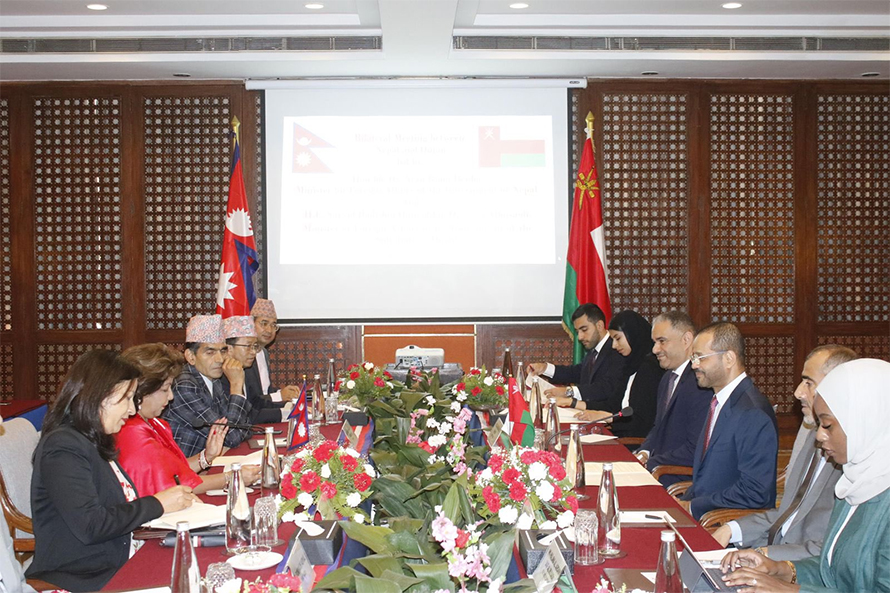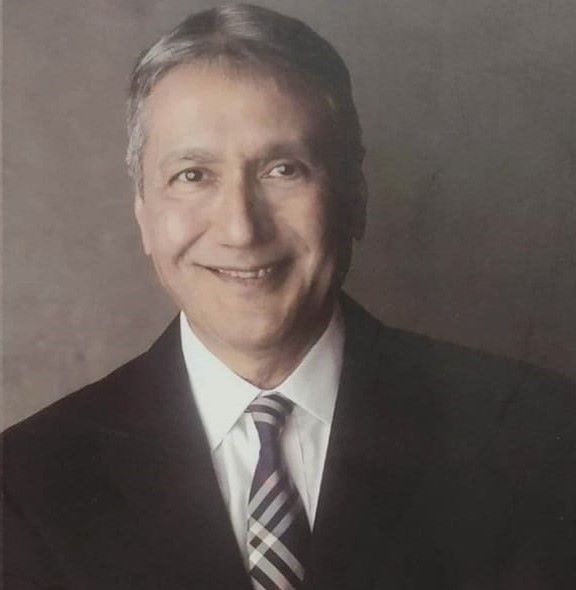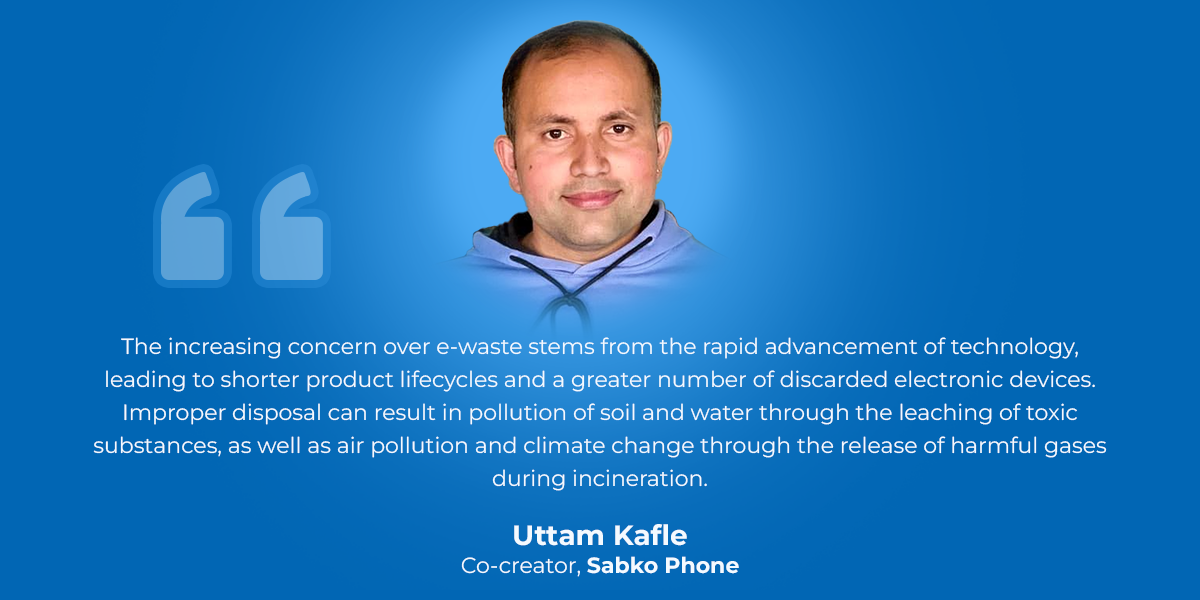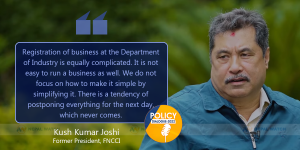The kind of MP we need
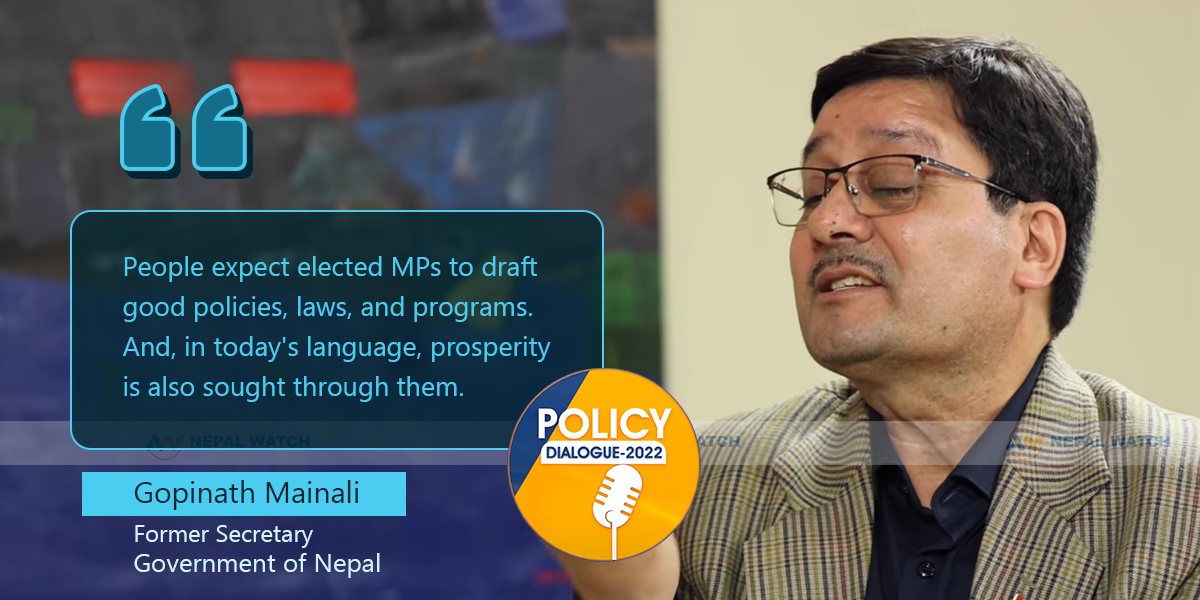
Kathmandu. Elections for the province and the House of Representatives has been held on the 20th of November. I am going to discuss the role of the parliamentarians, the electoral system, and the role of the administration.
The elected candidate must have the ability to understand the social reality, status, and expectations of the constituency from which he has won. Because, after going to the parliament, he will represent that feeling of the people. After being elected, he should be able to hold the national common sentiments expressed by the constitution along with the election-centered spirit of his region in the parliament.
During every election, we should be able to choose such a person who can build our hopes and expectations for five years. It can be reflected through policies and laws.
We entrusted MPs with sovereign rights by electing the members of the House of Representatives and the Provincial Assembly for five years through our precious votes. We surrender that sovereign power by voting for them. Not only that, but we also pay taxes for power to rule over us. After handing over both votes and taxes, we seek good governance and accountability from them.
People expect elected MPs to draft good policies, laws, and programs. And, in today’s language, prosperity is also sought through them. Prosperity can be seen from three angles. First, increase wealth. The second is health and the other is social security. An MP who can represent these three things is the current demand.
The electoral system has been under debate for some time. There is a need to change the system adopted now. A ‘slogan’ is very popular in elections in South Asia. We call that ‘money politics’. In money politics, people with definite intentions create an atmosphere and gain control within the party in the elections. However, apt candidates and people with potential are overlooked.
There are two main problems in the current political parties. First, they don’t have the ability or desire to choose a good person. Because of this, the parties have failed to choose a visionary leader so far. This has not opened the knots of political difficulties within their party. Therefore, the electoral system should be changed.
The Election Commission will determine the procedure, build the infrastructure and make the code of conduct. Its main ‘stakeholders’ are the political parties. Within the party, there is a lack of awareness regarding selecting the appropriate candidate based on political culture, ability to mobilize resources, honesty, and virtue. Nepal does not need much now.
Unfortunately, so far we have not been able to create an operational budget. We explained the budget as the
allocation of funds by the government. But the budget has not been able to accommodate the community sector and the private sector. We stopped talking about how to reassure private and community sectors and make them a ‘strategic partner’ for nation-building. What saddens me more is that the district without a big and influential leader did not get industries, factories, and even roads. We did not need such leadership.
Bajura, Pyuthan, or Mugu had to bear the cost of facilities that Rupendehi, Jhapa, Sunsari, Morang, and Chitwan receives. There should be an assurance that the system can work to correct such problems. And, for the development of that system, Parliament had to play a role. It is not only the political role of the MP but also the practical role of the political party plays a significant role. Article 269 of the Constitution speaks about this.
Except for a few MPs, most of our MPs who have been elected do not have policy knowledge. The political parties only gave party education to their leaders and workers. They did not pay attention to political, electoral, legal, and policy education which is most needed. The laws we made were more regulatory, not promotional. The engine of real development is the private sector. As our rules and laws are unreasonable, the private sector is the most affected.
The root cause of policy failure is that the bureaucracy makes laws without trying to capture the social reality. He only pays more attention to procedural matters. Some secretaries, general directors, or executive-level people have that kind of ability. But they are not kept there for long. Such people are stars in the eyes of the leadership, so they are transferred every month.
‘Institutional memory’ cannot be transferred after the short-term transfer of competent staff. In this way, the lack of institutional memory ‘transfer’ is the biggest weakness of our administration.
We don’t even have a policy and we don’t even organize policy workshops. We don’t even keep the details of the things that come from it. That is why most of our policies are ideological and ‘state dominated’. What needs to be done is a social-centric policy.
To make social-centric and industry-centric policies, we must first protect the knowledge of the organization. However, we have failed to do so. On the one hand, the administration has failed and on the other hand, the politics of ‘commanding’ it. It is reflected in the House of Representatives. As a result, whatever bill is ‘drafted’ by the employees, the parliamentarians pass them.
There is a lack of policy in most of our areas. Likewise, there is a lack of policy implementation. Most of the policies died the day they were born. The policy is not a formality, but a result. There is a need for a bureaucracy that has such a mindset. It also needs a system to regulate and monitor it by taking it to the parliament with competence. For this, we need a competent leader who is elected by the people. Therefore, I would like to tell the people to look at their competence and honesty while choosing their representatives.
Sometimes there is a choice between two candidates who have integrity and competence. In this case, if you have to ‘compromise’, I would like to say that you should choose the honest one. Because, even if the competent person is dishonest, everything will be ruined. This is the fate we have been experiencing so far.
There is a need to have a broad debate before the people who are presenting themselves as potential candidates. People should also be clear about what is required. That’s why we had to put a demand before the candidate and ask, ‘What is your point of view? What can you do?’
Parliament is the platform of representation. When there is a debate, when the discussion in the parliamentary committee, he should have the capacity to hold the feelings of the people. The media as a third eye should also monitor how much that person could/couldn’t raise people’s issues.
The parliamentarians should draft the laws as soon as possible. Whoever is an official, or minister, must strictly implement the laws drafted by the parliament. If we have leaders who draft laws prudently and implement them strictly, we will soon be on the journey of prosperity. Again, the matter goes to the development of the system. To strengthen the system, good, educated and highly moral employees should be promoted.
Now the political workers or parliamentarians who win the elections should be clear about what their constituencies are looking for. For this, we can be hopeful, if MPs can internalize from day one, to ensure internal governance raises a common voice of people.
Regardless of the agenda that arises in the elections, the current issue is the jobs sought by the economically active population. They want nothing more than that. It means that I fulfill my needs by working. We need candidates who can create this environment. After they won, they had to fulfill that promise and mobilize the private sector. For that, it is beneficial to have private sector-friendly MPs in Parliament.
(Edited part of the statement made by Gopinath Mainali, the former secretary of the Government of Nepal, in the debate on how a parliamentarian should be in Nepalwatch’s television presentation ‘Policy Dialogue 2022’. The program is hosted by former Vice president of National Planning Commission, Dr.Govida Raj Pokharel)
Trending
Related News
Latest
-

Riddara RD6 EV Pick Up Launches Exchange Offer In Nepal
-

Shop More, Save More with Daraz Nepal’s 5.5 Best Price, Best Deals
-

Unveiling the Galaxy S25 Ultra 1TB: Samsung’s Tera-fic New Flagship Variant Kicks Off the New Year with Unprecedented Storage Power
-

UK announces £10 million for Myanmar quake relief
-

World Bank Approves financing package of 150 Million USD to Nepal



